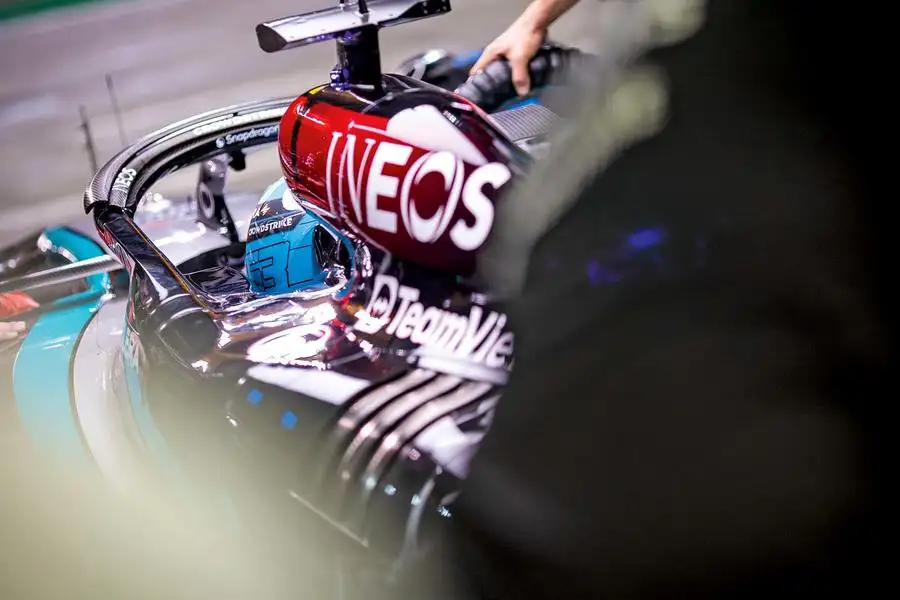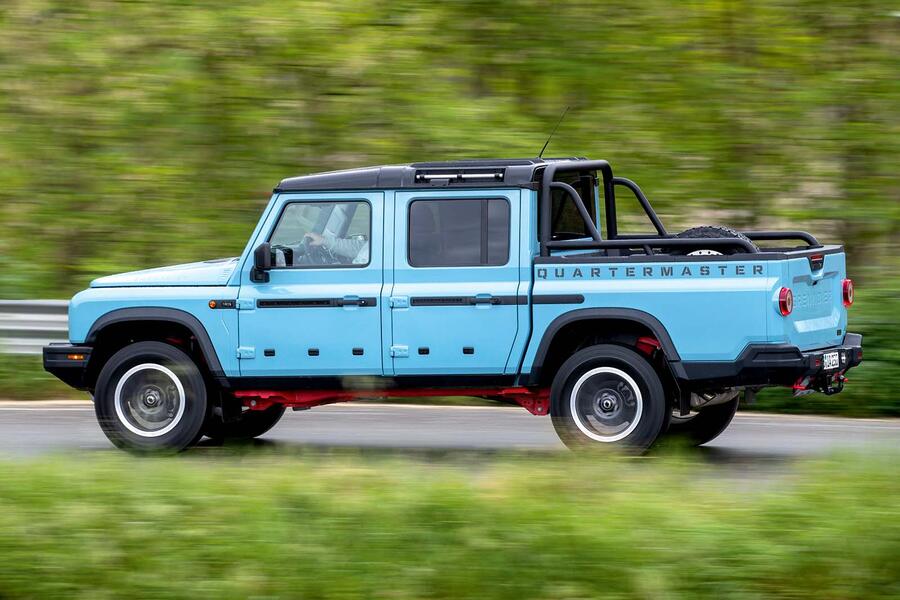Designing and engineering a car is one thing. Manufacturing and selling it is quite another.
Cars are extremely costly and complicated things to produce – not least because the process relies on hugely complex supply chains and the vehicles themselves must be built to meet all sorts of legislative requirements that are often different in every market.
Tesla is the only real modern example of a car maker that has been created from scratch and gone on to make a success of itself at any kind of meaningful scale.
Until now. Ineos Automotive was created over a pint in a London pub by Sir Jim Ratcliffe, who lamented the demise of the old Land Rover Defender and the absence in the market of anything like it. That was in 2016. Seven years later, the first Grenadiers left the production line.
Running the company since December 2022 has been Lynn Calder, who was brought in from elsewhere in the Ineos empire to get the Grenadier over the line and into mass production. For someone who had never worked in a car company before and who was arriving at the most crucial stage of all, it was quite the baptism of fire.

Calder recalls she was quite surprised to receive the job offer in the first place. “I couldn’t quite believe it,” she says. Yet while her appointment outwardly seemed to come from left field, Ineos isn’t a company to follow the traditional route. Calder herself also says she has had “left turns” in her career before and always had a family connection to cars.
When she was growing up, first in Fife near Edinburgh and then in Aberdeen, cars were constantly around her. She recalls her mechanic father “spending all his money on cars… He just wanted to try new things all the time so you’d come home one day and find the Volvo estate had turned into a Nissan Primera”. Her first car was an A-reg Ford Fiesta that brought “freedom” in her rural location.
Calder has an economics degree and started her career in the oil and gas industry (“I like manufacturing, and scientific and technical topics, so understanding extraction methods made it all quite exciting to me”) before the first left turn took her into a US-based private equity company.
There, Calder learned “about business properly, the absolute nuts and bolts of them and how to run them efficiently”, as well as a realisation that surprised her. “I went into private equity thinking it was about numbers but came out almost 10 years later realising it’s all about people. The people you work with drive businesses forward and know what needs to be done,” she says.












Join the debate
Add your comment
"Tough beginnings" and it's a company owned by a billionaire
This is disinformation. Absolutely no government, anywhere, is mandating EVs specifically. There's no law, putative or otherwise, saying you won't be able to sell a car powered by hydrogen, or plutonium rods, or antimatter, or a giant hamster running in a wheel. The mandate is against cars which emit greenhouse or toxic gases from the tailpipe - which should be good news to anyone with lungs. How manufacturers choose to meet that criteria is still up to them, but the fact that a zero-tailpipe-emission mandate is seen as an EV mandate says something about how viable the other options are.
Plug-in hybrid tailpipe emissions depend entirely on the driver's usage, which could be anything from near-zero to worse than a non-plug-in hybrid, depending on how often the driver plugs in. The official WLTP test cycle does assume frequent pluggings in, but real-world studies show that this is highly optimistic. ICCT and Fraunhofer ISI's 2022 survey of 9,000 drivers found that real-world fuel usage was 3-5 times higher than the official WLTP figure. Eventually, the WLTP methodology is likely to be revised, and PHEVs will suddenly be nowhere near as effective for lowering a manufacturer's fleet emissions.
Regardless - it's another way to perpetuate the use of fossil fuels, which is the problem. If the entire fuel supply is generated renewably, then there could be discussion about keeping new vehicles like this on sale permanently. In the meantime, it's just another tool for the petrochemical industry to lobby with. As this article is ably demonstrating.
Spot on